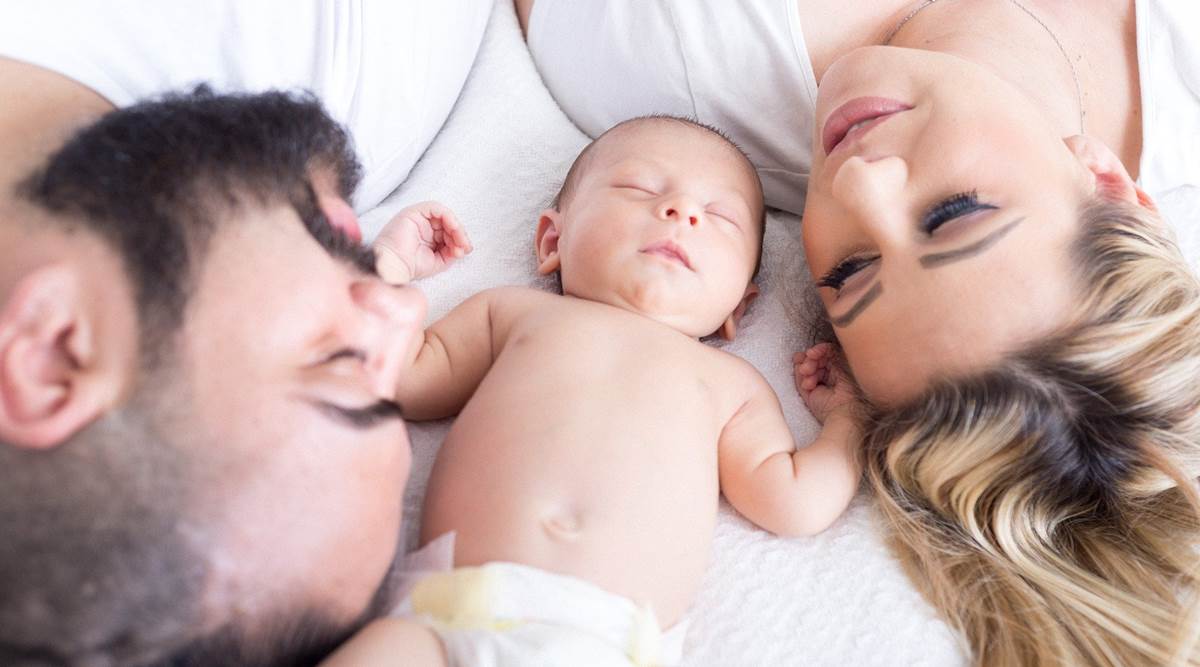Here’s what new parents need to know about ‘catnapping’

The short sleep-wake cycle where the little one wakes up in 30-45 minutes after being put to sleep is called 'catnapping'.

While newborn babies have erratic sleep patterns, the absence of a set routine for prolonged periods of time can be exhausting for parents. It is sometimes seen that when parents put a baby down to sleep, they wake up after increasingly shorter naps, despite proper feeds and seemingly content otherwise. This can leave parents with little time to do their other activities, having to hover around the baby.
Dr Suruchi Goyal, consultant, paediatrics and paediatric endocrinology, at Columbia Asia Hospital Whitefield, says this is a common scenario faced by parents where a set routine appears to be difficult to maintain, especially with respect to sleep. “The short sleep-wake cycle where the little one wakes up in 30-45 minutes after being put to sleep is called ‘catnapping’,” the doctor says.
The doctor explains that while a ‘catnap’ in babies is completely normal in the first few months of birth, “it could be quite distressing for parents to see their baby having extremely short sleeps, and at the same time tiring, too”.
“Babies normally tend to drift between sleep cycles during day-time nap and night-time sleeps. Around the age of 4 months, however, the part of the brain that is responsible for sleep matures and babies start drifting less between the cycles of sleep. Most of the babies wake up completely between the sleep cycles from this age,” she explains.
But why do babies catnap?
According to Dr Goyal, one of the primary reasons is that babies spend more time in a light stage of sleep called REM, which means they wake up easily and may also find it difficult to go back to sleep. “As kids pass through that light sleep stage, they wake up. As they grow older, they learn to put themselves back to sleep; newborns do not have that ability. Kids who are put to sleep by bouncing or rocking, bottle or breast-feeding, will always look for the thing that helps them fall asleep.”

Catnap and inconsolable babies
Most parents begin to worry when their babies wake up crying, and are inconsolable, even after feeding, changing of diapers and rocking. The doctor recommends seeking expert help, since there could be underlying problems.
“Ultimately, if the baby is growing and generally healthy, catnapping is not a concern. Whether they take catnaps or extended naps, it means they are getting appropriate sleep they require for their age.”
How can parents extend babies’ sleep time?
“Try to look for cues when the little one is tired: if they are yawning, sucking their fingers, etc. Put them down in their cot and let them lull themselves to sleep without you rocking or feeding them.
“If they sleep on their own, they are more likely to pacify themselves to sleep when their sleep enters the light phase rather than needing you. If they wake up, try to not pick them up immediately; instead pat them back to sleep.
“Try to maintain a routine and a constant environment around the baby; light, noises etc,” suggests the doctor.
Tips for parents
“While trying to do their best for the child, parents must not ignore themselves and must get enough rest. Try to go out for a walk each day, accept any helping hand for either sitting with your little one or with household chores. Get some sleep as time permits.”
Source: Read Full Article